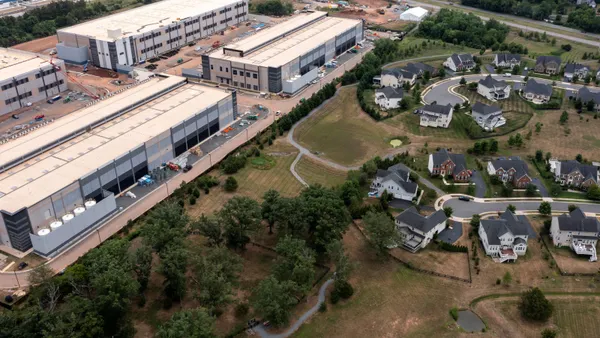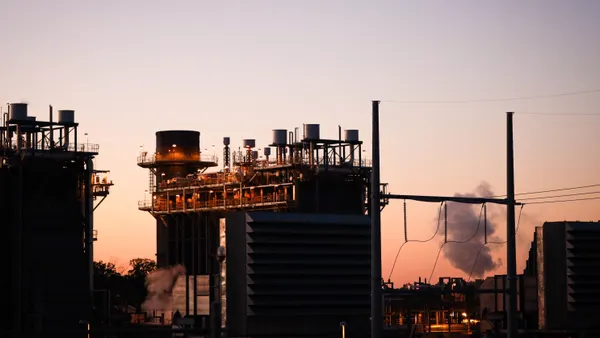Dive Brief:
-
Georgia approved an almost $1.8 billion rate hike for the state's monopoly utility on Tuesday intended to pay for the cost of cleaning up the company's coal ash ponds.
-
The rates will allow Georgia Power to charge customers an extra $4 monthly by 2022, with an initial $2 hike beginning 2021. The utility has estimated its plan to excavate 19 of its 29 coal ash ponds and leave the remaining 10 capped and in place could cost up to $2 billion. Environmentalists are concerned the utility was not transparent enough in how it plans to spend the additional revenue.
-
"The lion's share of the rate increase" was for coal ash clean up, Public Service Commission (PSC) Vice Chairman Tim Echols told Utility Dive in an email. But "[s]everal positives" emerged from the case as well, he said, including the removal of third-party convenience fees, a net metering increase and $8 million in investment for electric vehicle charging infrastructure.
Dive Insight:
Coal ash pollution is rampant across the U.S. with over 90% of the coal plants in the U.S. reporting unsafe levels of one or more toxins. In Georgia, 11 of the state's 12 coal plants report the same.
Georgia Power's plan calls for full clean up at almost two-thirds of its ponds, while the remaining 10 will remain capped and in place. The utility is still awaiting permit approval from the state's Environmental Protection Division and environmentalists are concerned that approving a plan that doesn't have the necessary regulatory permits to proceed and that doesn't provide a breakdown of how costs will be spent is imprudent.
"To make a determination of prudency, the commission needs more information about what exactly the company is planning to do at these ash ponds," Stephen Stetson, Sierra Club's Georgia representative for the group's Beyond Coal campaign, told Utility Dive. "This is all very contingent and very premature for [Georgia Power] to be authorized to recover costs for a project that lacks so many details."
Georgia Power did not respond ahead of publication.
The utility is also likely to have to go back to the commission for more cost recovery on this plan, noted Stetson, who estimates costs could reach $7 billion. "This is just the first of several bites of the apple."
Several environmental groups have also found fault in the plan itself, which they say doesn't go far enough in protecting groundwater and waterways.
A report released in August, commissioned by the Southern Environmental Law Center, pointed to several flaws in the plan, including elements of the proposal that would leave ash sites capped near floodplains and under creek beds.
"We would like to see them excavate all of them, obviously," said Stetson.
Sierra Club says that if any coal ash discharges are found to be illegal, the company should not be able to recover those clean-up costs. The group is still weighing whether or not to appeal, with that idea in mind.
The net metering expansion will include 5,000 behind-the-meter customers. Commissioner Echols pushed for that as well as the charging infrastructure.
"Georgia Power, at my urging, included $2 million in charger investments in their original filing," said Echols, which increased to $8 million after he asked them to increase future stipulations "and add additional money for make-ready expenses for wires and transformers."
Earlier this year, the PSC rejected a proposal that would have raised customer bills over $7 per month. Four out of five commissioners approved the latest motion, offered by Echols.














